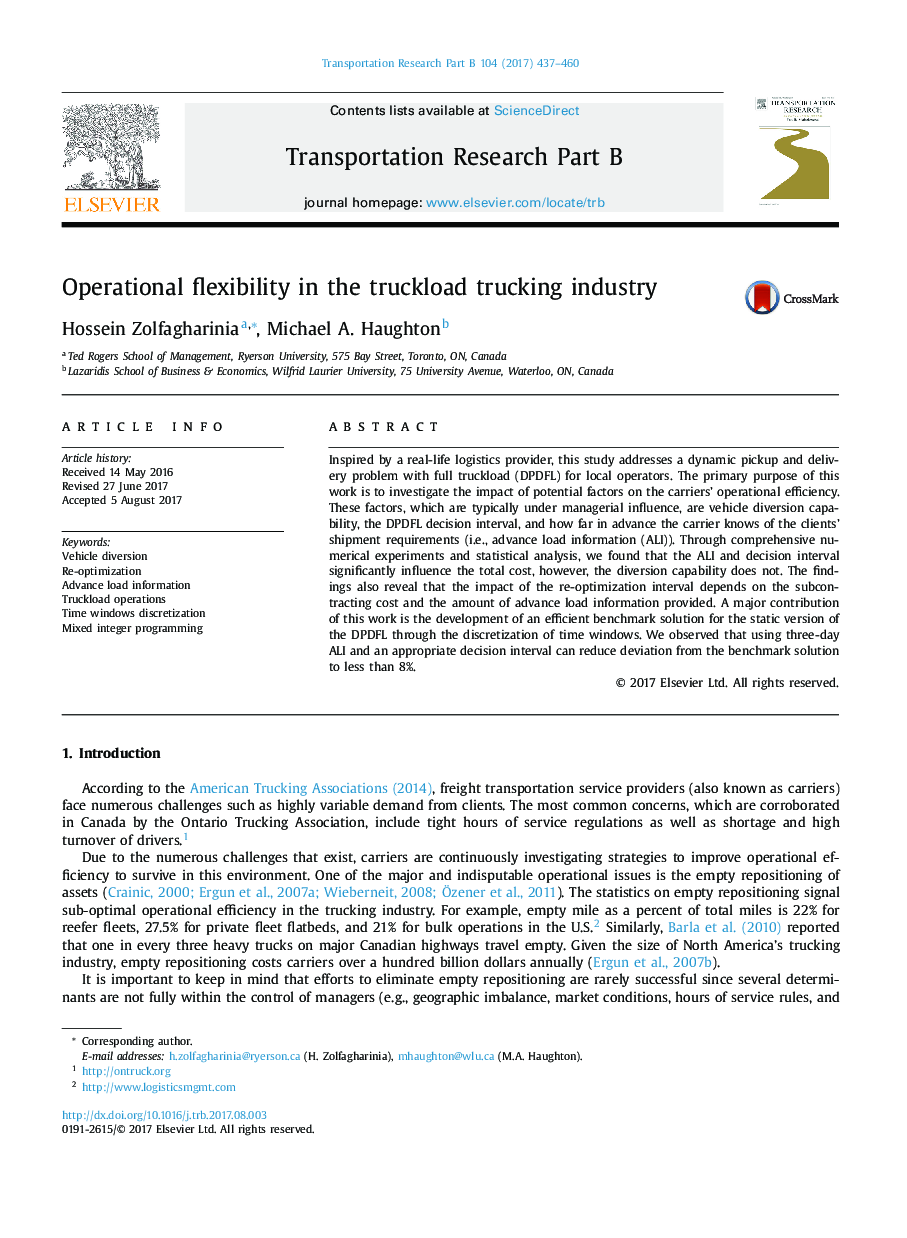| Article ID | Journal | Published Year | Pages | File Type |
|---|---|---|---|---|
| 5126970 | Transportation Research Part B: Methodological | 2017 | 24 Pages |
â¢We study operational flexibility in dynamic pick-up and delivery settings.â¢An efficient algorithm is developed using the idea of time window discretization.â¢The results suggest a shorter decision interval when subcontracting cost is high.â¢We find that the benefit of information sharing depends on subcontracting costs.â¢The findings reveal that the vehicle diversion does not reduce the total cost.
Inspired by a real-life logistics provider, this study addresses a dynamic pickup and delivery problem with full truckload (DPDFL) for local operators. The primary purpose of this work is to investigate the impact of potential factors on the carriers' operational efficiency. These factors, which are typically under managerial influence, are vehicle diversion capability, the DPDFL decision interval, and how far in advance the carrier knows of the clients' shipment requirements (i.e., advance load information (ALI)). Through comprehensive numerical experiments and statistical analysis, we found that the ALI and decision interval significantly influence the total cost, however, the diversion capability does not. The findings also reveal that the impact of the re-optimization interval depends on the subcontracting cost and the amount of advance load information provided. A major contribution of this work is the development of an efficient benchmark solution for the static version of the DPDFL through the discretization of time windows. We observed that using three-day ALI and an appropriate decision interval can reduce deviation from the benchmark solution to less than 8%.
